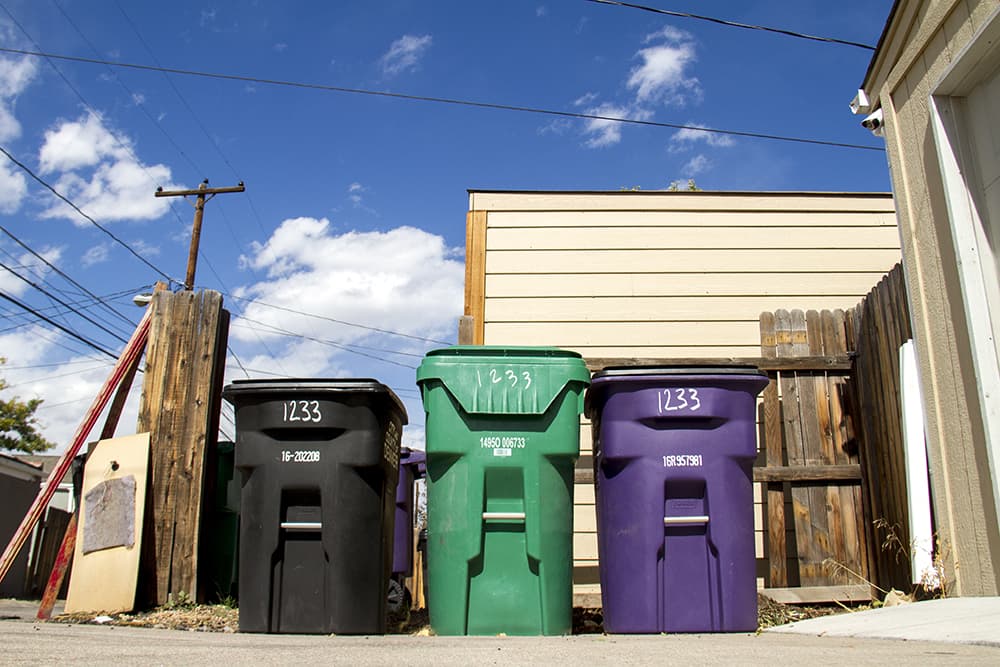If your trash didn't get picked up in the past few weeks, you're not alone. The Department of Transportation and Infrastructure's Solid Waste Management Division has some big hurdles right now. Staff know and are scrambling to catch up on missed routes.
"On our most challenging staffing day, we may miss 4 out of 100 routes, catching up on those typically the next day," explained DOTI spokesperson Nancy Kuhn in an email. "That amounts to about 3,000 households we're catching up on within 24 to 48 hours, or 1.6% of 180,000 total customers."
The city's help line, 311, has been receiving enough calls about it that there's now a message instructing people on what to do if their trash, recycling and compost are still in the alley at the end of the day the waste was scheduled to be carted away.
This is what 311 has to say: "Please note: If there has been no trash, recycle or compost collection on your day of service, please allow an additional 24 hours from your service date before reporting a missed collection. Please leave your cart or carts out until pickup can occur. Your patience is greatly appreciated."
At the beginning of 2022, the city rolled out a new trash collection schedule that was supposed to make things work better.
"On Monday, January 3, DOTI drivers will begin running new trash, recycling, and compost routes throughout the city to make operations more efficient and collection services more reliable and consistent, and that means new trash collection days for most Denver customers," DOTI wrote in a late December statement.
That rollout was the first major route adjustment in 15 years, DOTI noted, though the city has grown by around 200,000 people in that time period.
DOTI explained that the new routes would be denser and more compact to address increased domestic trash from more people working at home. The agency would shift to a "district approach," so the same workers would be on consistent routes and fewer pickups would be missed. The new routing would significantly cut back on mileage driven, fuel expenses and greenhouse gas emissions.
It's not the routing that's gone wrong for the Solid Waste Management Division. It's the same issue that's plaguing Denver Public Schools and the Regional Transit District: staffing shortages.
"We're continuing to try to ramp up staffing levels in our Solid Waste Management Division," noted Kuhn. And recruitment efforts are afoot. "That division is looking to fill 29 of its 131 driver positions, offering $2,500 signing bonuses. Also, acknowledging the value of employees that have worked diligently throughout the pandemic, DOTI initiated competitive pay increases last year to current drivers based on total years of experience using a commercial driver's license."
Kuhn noted that for the most part, despite the staffing shortage, DOTI is keeping up with demand.
"The main message for our trash collection customers is that if they set out their cart by 7 a.m. on the correct day and we don't empty it, they should leave the cart out, and we'll collect it within 24 to 48 hours," she said. "The resident does not need to call 311 to let us know, as we will be aware if we missed a route."
Even when customer's forget to set out their carts, they can call 311 and DOTI will stop by within 24 to 48 hours.
Kuhn said the new scheduling system comes with some perks and allows for mistakes and missed routes. "In implementing our new routing system in January, we have Fridays open to play catchup as needed."











